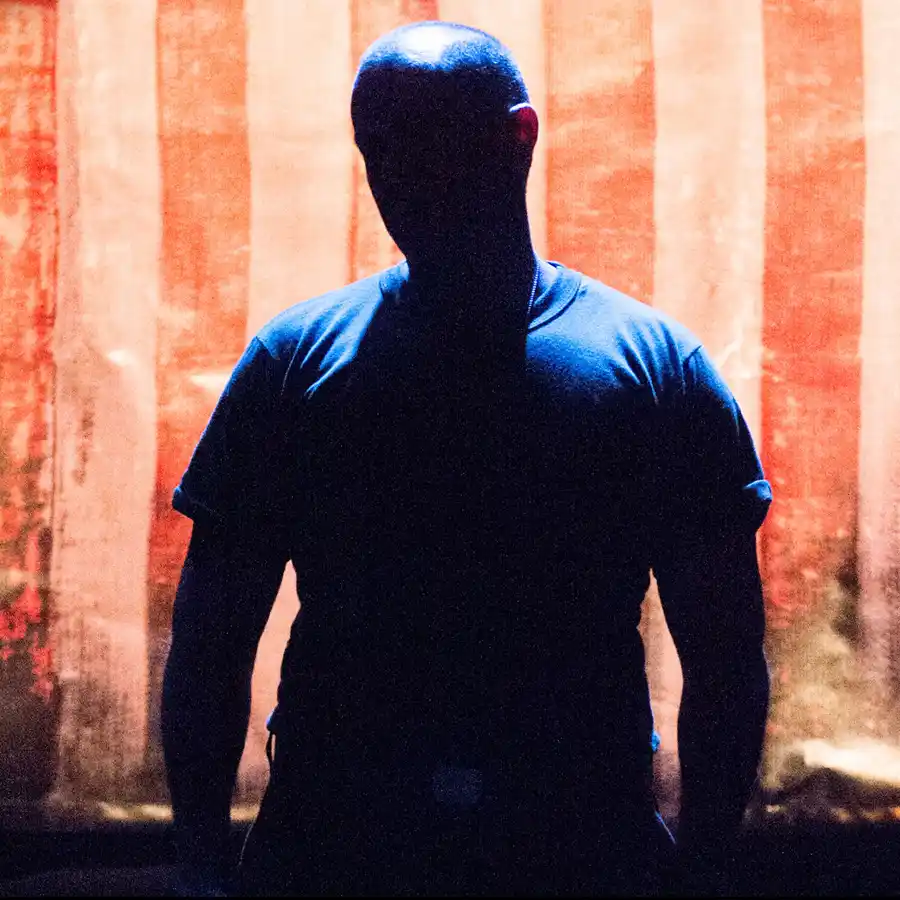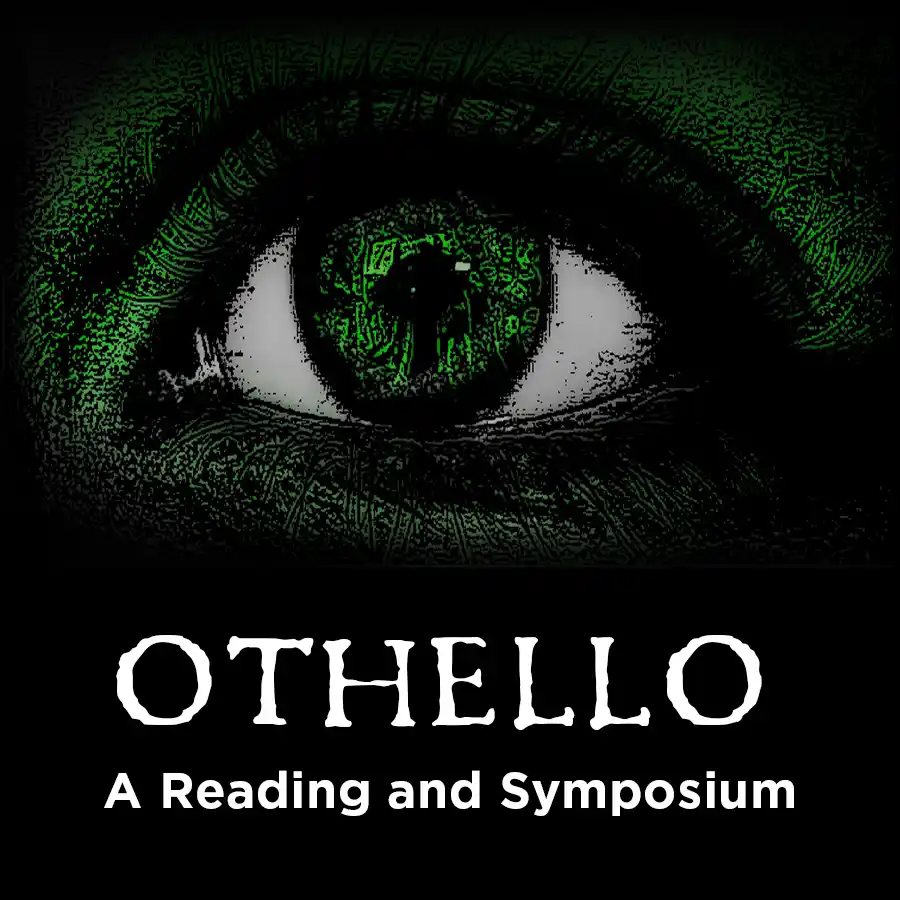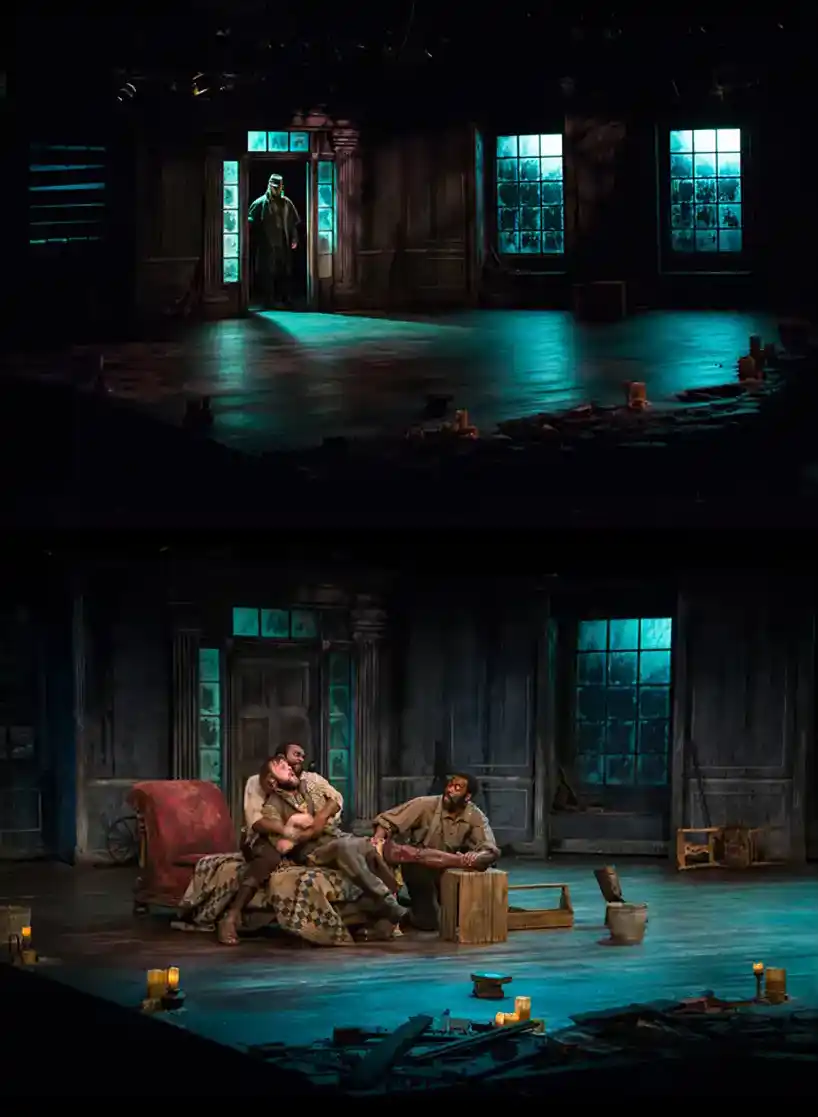

A Flexible Curriculum
The study of Lighting Design at UT does not only include Theatre — students can also explore design for other disciplines such as Dance, Music, Opera, Industrials, Ice Shows, and large-scale Arena Projects. We also put and emphasis on Digital Media / Projection Design and Technology and its integration with light. This substantially enhances the student’s education and prepares them for a broader field of employment. The curriculum is flexible enough to be adapted to individual student strengths and interests.
The MFA Design Program at UTK recruits students for enrollment in the Fall of even numbered years. Our next recruitment cycle will be in Fall 2024. Online application is encouraged after receiving an informal offer from the program.
Student Work
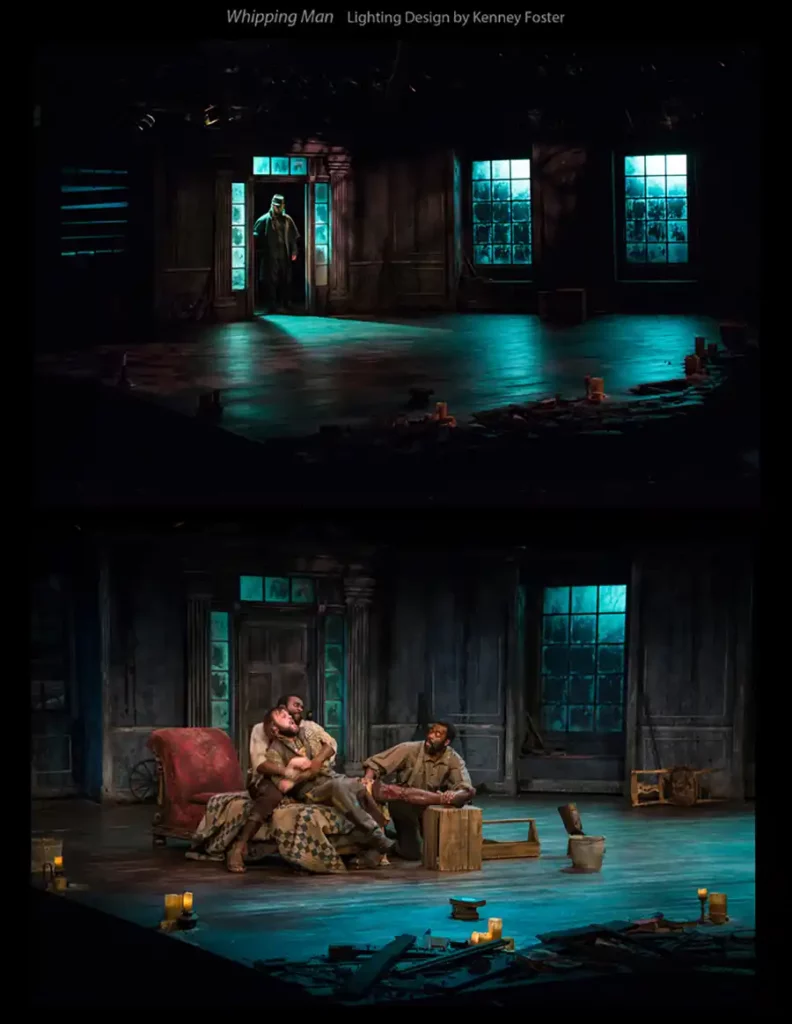
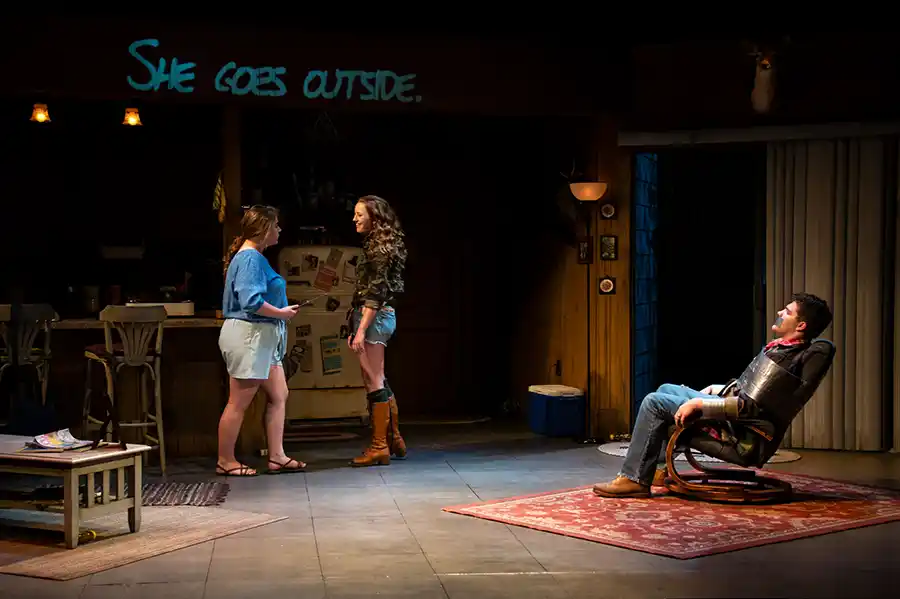
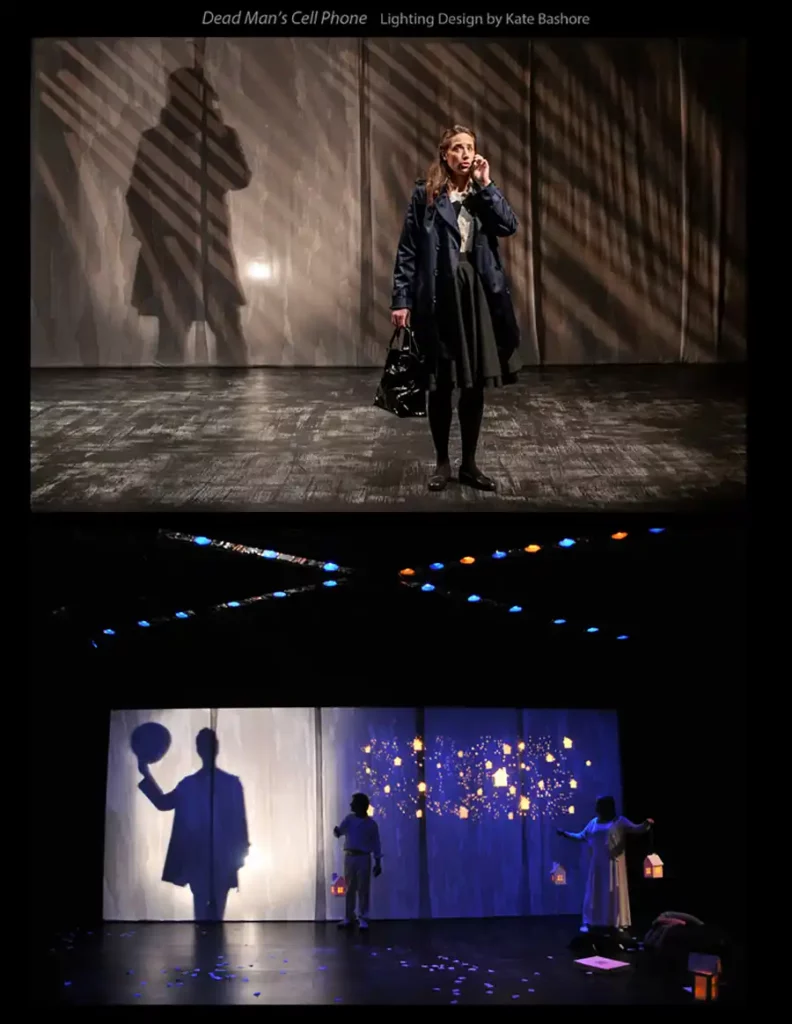

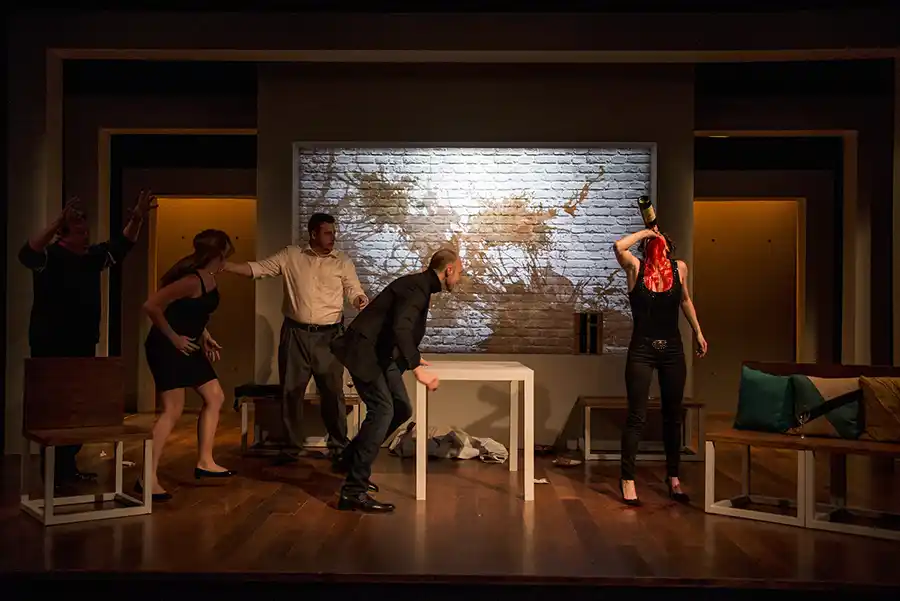
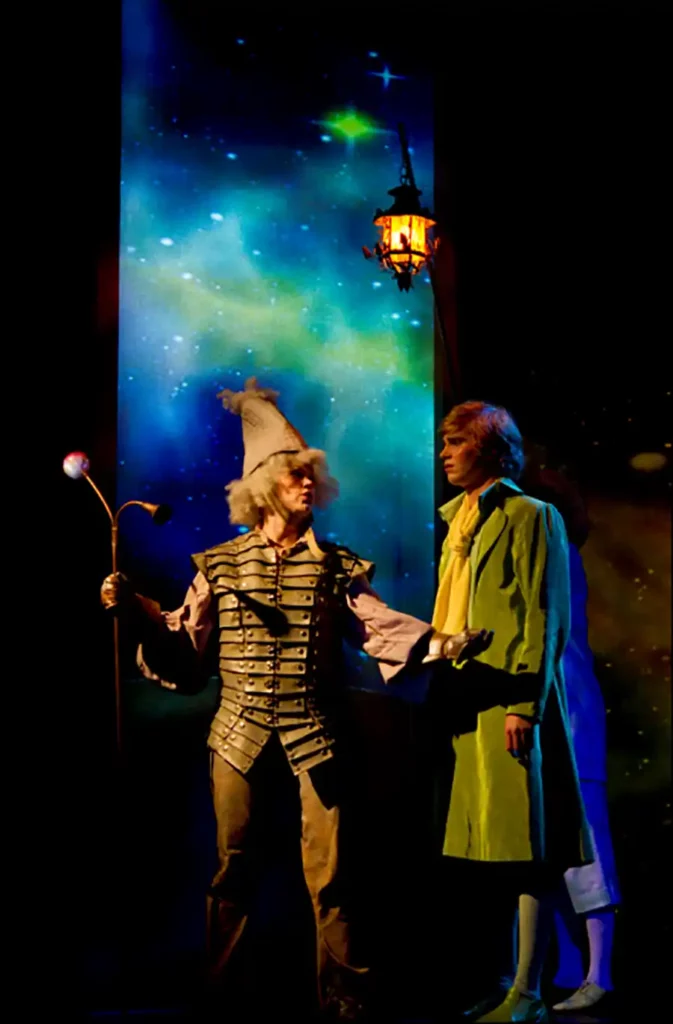
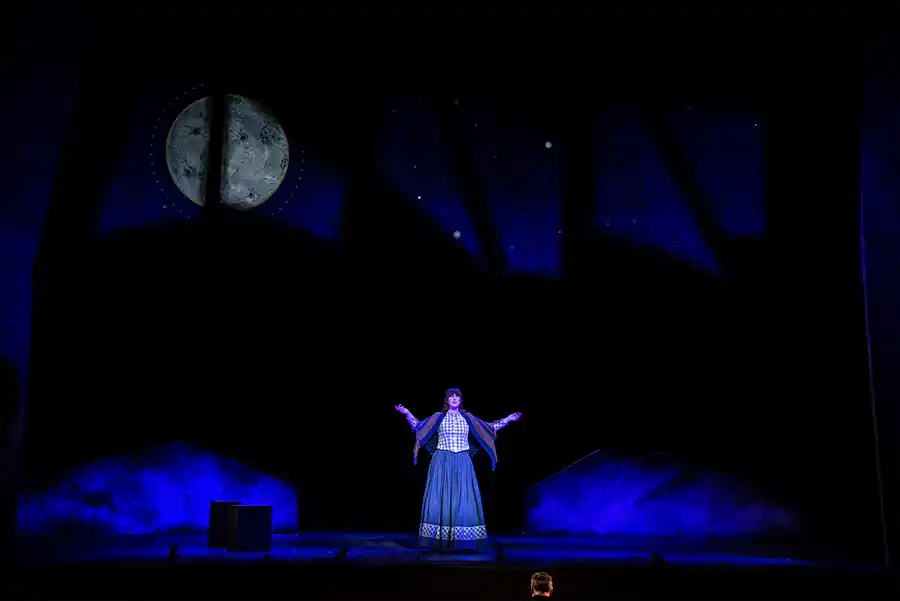
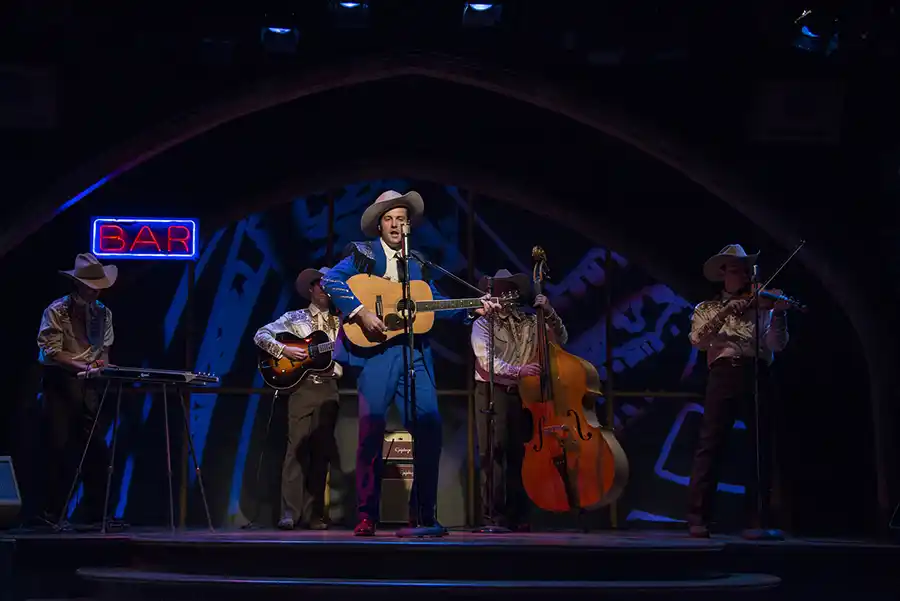
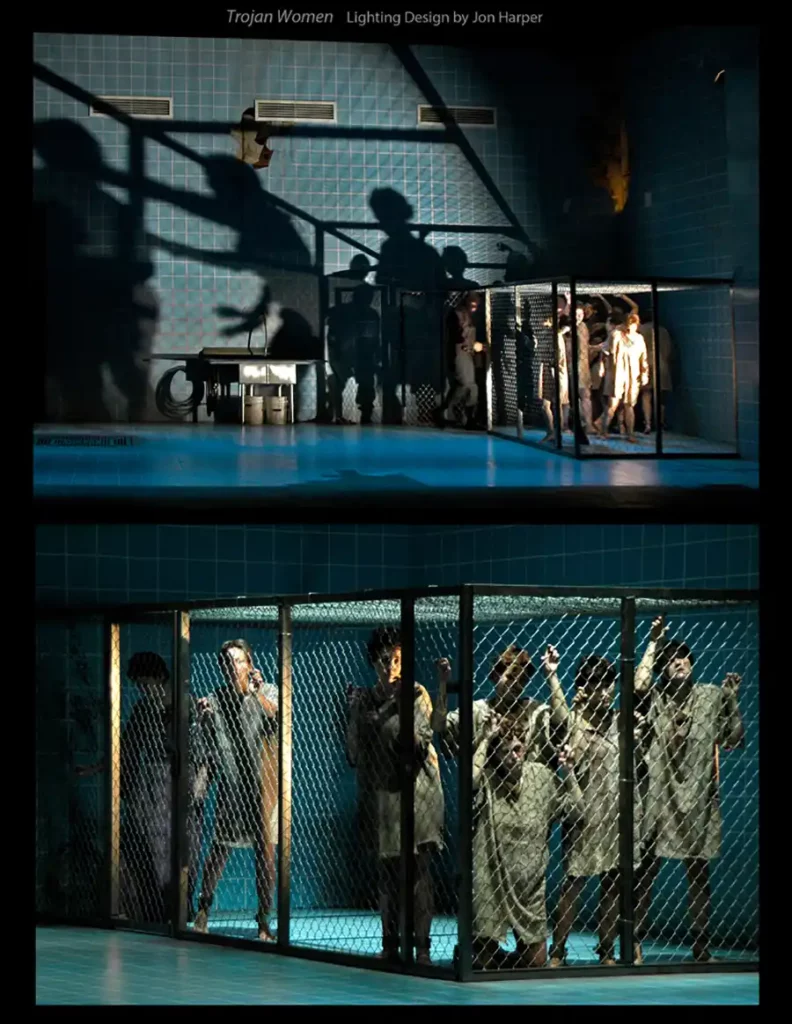
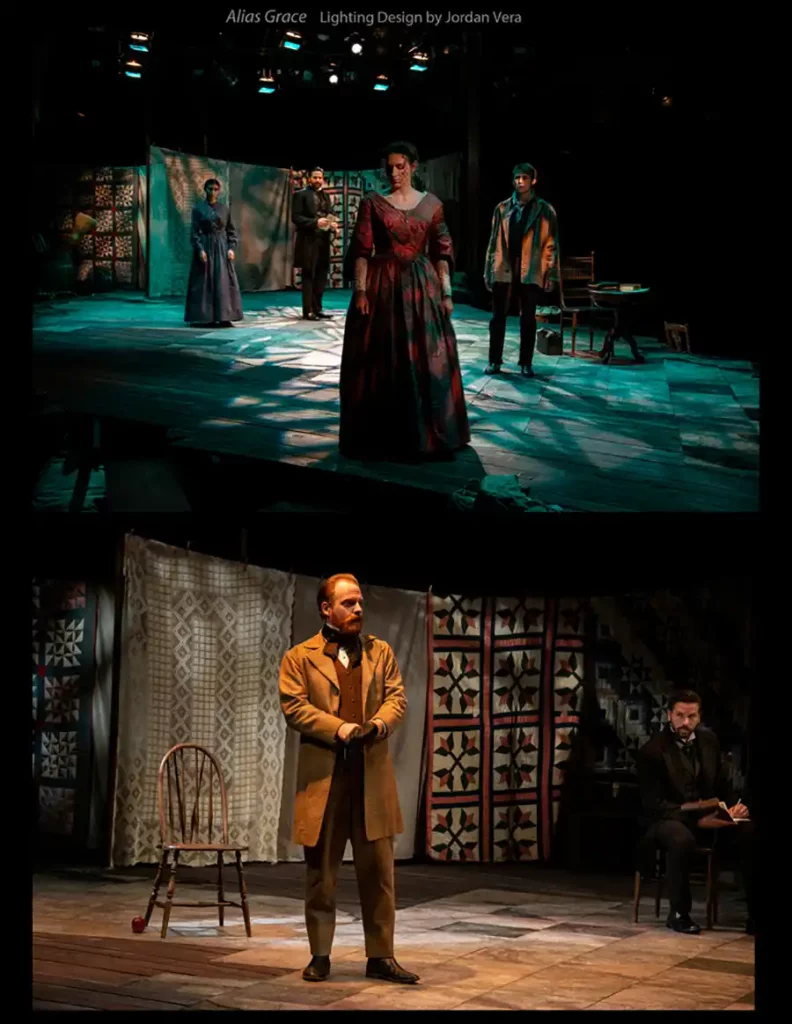
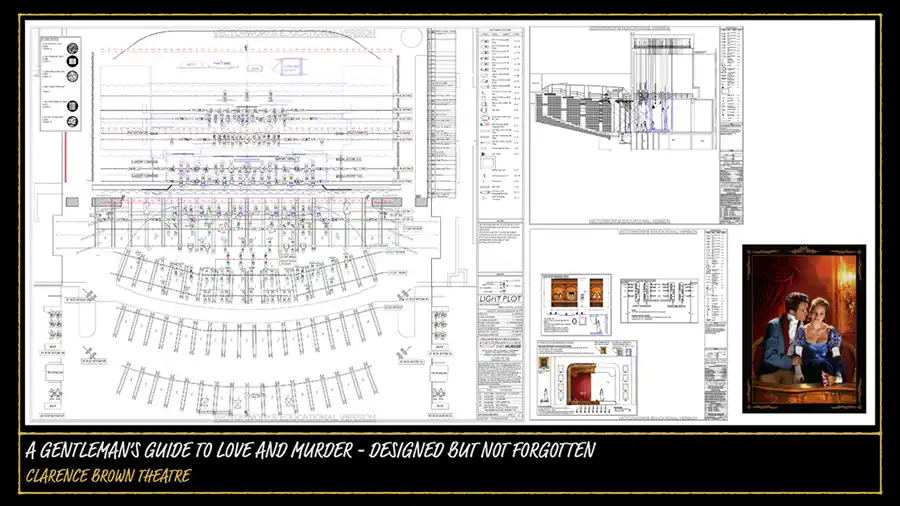
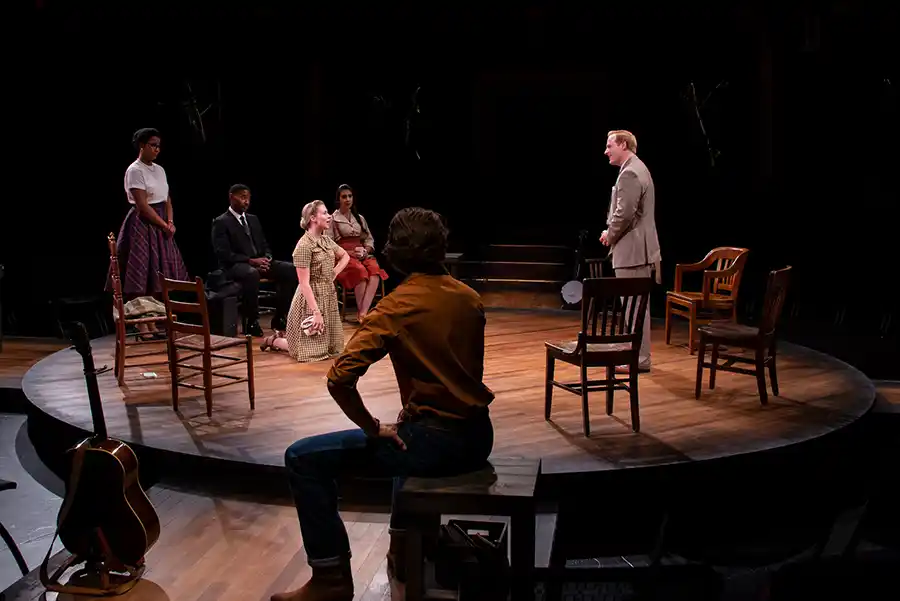
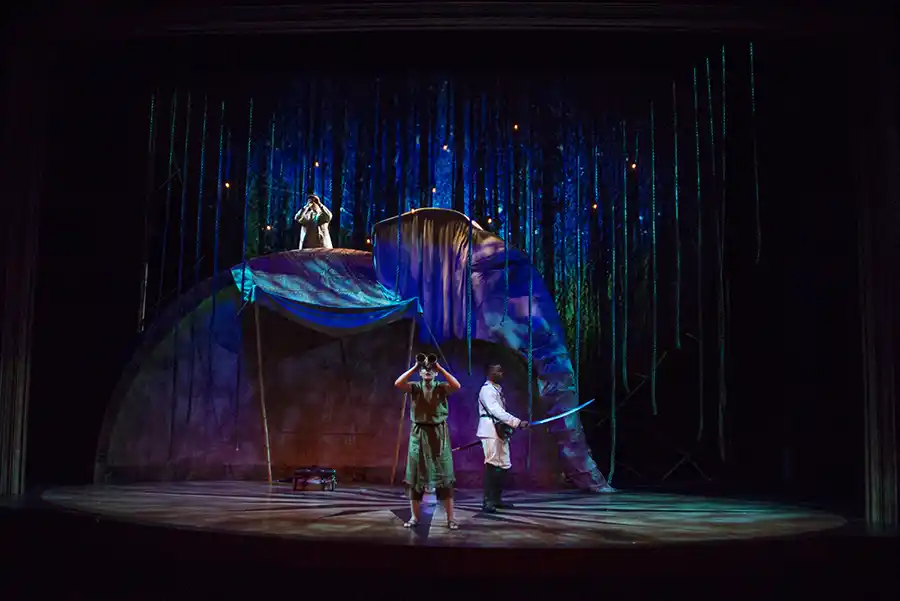
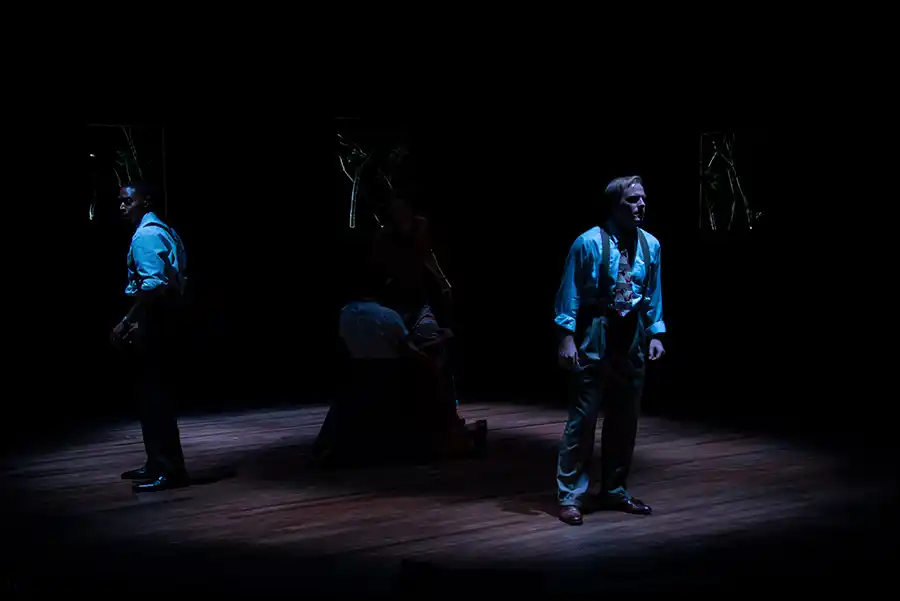
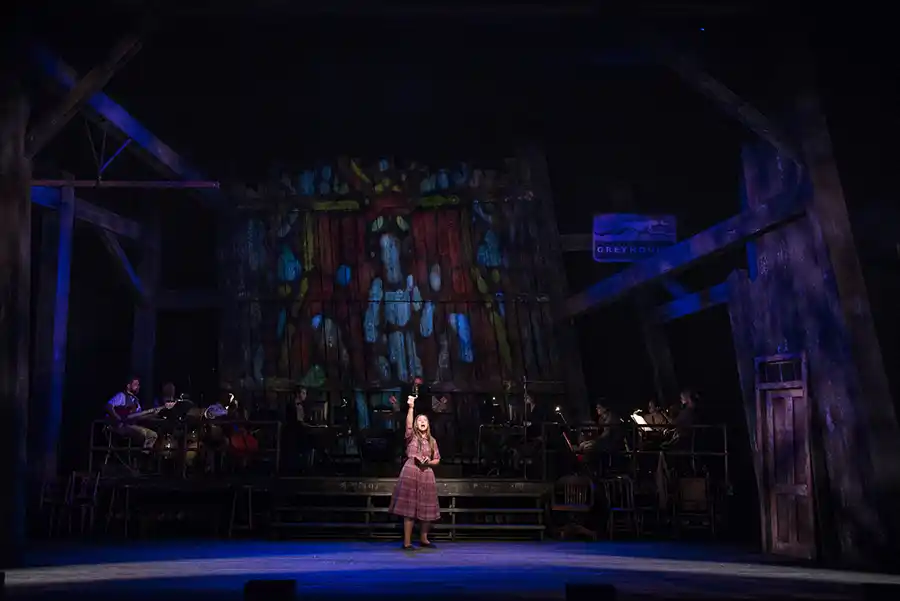

Student Awards, Lighting Design
2020s
2021
SETC – Southeastern Theatre Conference
2nd Place: E.T.C. National Graduate Lighting Design Competition: Kaylin Gess
SETC – Southeastern Theatre Conference
2nd Place: E.T.C. National Graduate Lighting Design Competition: Bill Miller
2020
SETC – Southeastern Theatre Conference
2nd Place: E.T.C. National Graduate Lighting Design Competition: Bill Miller
2010s
2019
USITT – United States Institute for Theatre Technology
Recipient: Rising Star Award: Maranda DeBusk
USITT – United States Institute for Theatre Technology
Recipient: 1 st place: Barbizon National Lighting Award: Alice Trent
USITT – United States Institute for Theatre Technology
Juried Exhibitor: Young Designers Forum, Lighting Design: Alice Trent
SETC – Southeastern Theatre Conference
Recipient: Ready to Design Award – Lighting Design: Alice Trent
SETC – Southeastern Theatre Conference
Recipient: John Spiegel Theatrical Artist Award: Alice Trent
SETC – Southeastern Theatre Conference
2nd Place: E.T.C. National Graduate Lighting Design Competition: Helen Garcia-Alton
2017
SETC – Southeastern Theatre Conference
1st Place: National Graduate Projection Design Competition: Alice Trent
USITT – United States Institute for Theatre Technology
Recipient: 1 st place: Barbizon National Lighting Award: Maranda DeBusk
USITT – United States Institute for Theatre Technology
Juried Exhibitor: Young Designers Forum, Lighting Design: Maranda DeBusk
World Stage Design Exhibit
Taipei, Taiwan: Maranda DeBusk (One of 11 Emerging Lighting Designers in the world to exhibit in this prestigious quadrennial juried event.)
SETC – Southeastern Theatre Conference
Recipient: Ready to Design Award – Lighting Design: Maranda DeBusk
SETC – Southeastern Theatre Conference
2nd Place: National Graduate Projection Design Competition: Maranda DeBusk
SETC – Southeastern Theatre Conference
Recipient: John Spiegel Theatrical Artist Award: Maranda DeBusk
2016
SETC – Southeastern Theatre Conference
2nd Place: E.T.C. National Graduate Lighting Design Competition: Maranda DeBusk
2015
USITT – United States Institute for Theatre Technology
Recipient: Barbizon National Lighting Award: Kenney Foster
USITT – United States Institute for Theatre Technology
Juried Exhibitor: Young Designers Forum, Lighting Design: Kenny Foster
SETC – Southeastern Theatre Conference
1st Place: E.T.C. National Graduate Lighting Design Competition: Maranda DeBusk
SETC – Southeastern Theatre Conference
2nd Place: E.T.C. National Graduate Lighting Design Competition: Kenny Foster
SETC – Southeastern Theatre Conference
3rd Place: E.T.C. National Graduate Lighting Design Competition: Tannis Kapell
2014
SETC – Southeastern Theatre Conference
1st Place: E.T.C. National Graduate Lighting Design Competition: Kenny Foster
SETC – Southeastern Theatre Conference
Recipient: Ready to Design Award – Lighting Design: Kristen Giesler
2013
SETC – Southeastern Theatre Conference
Recipient: Ready to Design Award – Lighting Design: Tim Hart
Gilbert Hemsley- Internship Program NYC
Recipient: Kate Bashore
USITT – United States Institute for Theatre Technology
Juried Exhibitor: Young Designers Forum, Lighting Design: Kate Bashore
SETC – Southeastern Theatre Conference
1st Place Tied: E.T.C. National Graduate Lighting Design Competition: Kate Bashore
SETC – Southeastern Theatre Conference
1st Place Tied: E.T.C. National Graduate Lighting Design Competition: Tim Hart
SETC – Southeastern Theatre Conference
3rd Place: E.T.C. National Graduate Lighting Design Competition: Kenny Foster
2012
ETC LDI 2012 Conference Scholarship
Full conference funding by Electronic Theatre Controls: Tim Hart
SETC – Southeastern Theatre Conference
1st Place: E.T.C. National Graduate Lighting Design Competition: Kate Bashore
SETC – Southeastern Theatre Conference
2nd Place: E.T.C. National Graduate Lighting Design Competition: Tim Hart
2011
SETC – Southeastern Theatre Conference
1st Place: E.T.C. National Graduate Lighting Design Competition: Tim Hart
2000s
2009
SETC – Southeastern Theatre Conference
1st Place: E.T.C. National Graduate Lighting Design Competition: Catherine Girardi
SETC – Southeastern Theatre Conference
2nd Place: E.T.C. National Graduate Lighting Design Competition: Jenn Tripp
SETC – Southeastern Theatre Conference
3 rd Place: E.T.C. National Graduate Lighting Design Competition: Leigh Brown
USITT – United States Institute for Theatre Technology
Recipient: Barbizon National Lighting Award: Catherine Girardi
USITT – United States Institute for Theatre Technology
Juried Exhibitor: Young Designers Forum, Lighting Design: Catherine Girardi
USITT – United States Institute for Theatre Technology
Recipient: International Student Travel award to attend World Stage Design in South Korea: Leigh Brown
World Stage Design Exhibit
South Korea: Leah Brown (One of nine Lighting Designers in the world to exhibit in this prestigious quadrennial juried event.)
Gilbert Hemsley Internship Program NYC
Recipient: Leigh Brown
2008
SETC – Southeastern Theatre Conference
1st Place: E.T.C. National Graduate Lighting Design Competition: Leigh Brown
SETC – Southeastern Theatre Conference
3rd Place: E.T.C. National Graduate Lighting Design Competition: Catherine Girardi
2007
USITT – United States Institute for Theatre Technology
Juried Exhibitor: Young Designers Forum, Lighting Design: John Harper
SETC – Southeastern Theatre Conference
1st Place: E.T.C. National Graduate Lighting Design Competition: Catherine Girardi
SETC – Southeastern Theatre Conference
2nd Place: E.T.C. National Graduate Lighting Design Competition: Jeff Meyer
2006
SETC – Southeastern Theatre Conference
1st Place: E.T.C. National Graduate Lighting Design Competition: Jon Harper
LDI 2006 – Lighting Design International
Winner, Full Student Sponsorship: Jon Harper
2005
USITT – United States Institute for Theatre Technology
Recipient: Barbizon National Lighting Award: Keith Kirkland
USITT – United States Institute for Theatre Technology
Juried Exhibitor: Young Designers Forum, Lighting Design: Keith Kirkland
Kennedy Center Summer Intensive Design Program
Only lighting student in the US to receive full scholarship: Keith Kirkland
SETC – Southeastern Theatre Conference
1st Place: E.T.C. National Graduate Lighting Design Competition: Weston Wilkerson
2004
SETC – Southeastern Theatre Conference 2004
2nd Place: E.T.C. National Graduate Lighting Design Competition: Weston Wilkerson
2003
SETC – Southeastern Theatre Conference 2003
1st Place: E.T.C. National Graduate Lighting Design Competition: Weston Wilkerson
How to Apply for Your MFA in Lighting Design
Step 1
Inform Head of Lighting Design, Kenton Yeager, by email of your interest in applying to the program. An interview and portfolio review will be scheduled. These are required before completing the following steps for admission.
Step 2
In order to be considered for admission, all applicants must:
- Complete the Graduate School Application
- Pay the $60 application fee by credit card or electronic check.
- Upload/Enter the following materials into the Graduate School Application:
- Unofficial transcripts of all prior Undergraduate and Graduate coursework and degree confirmations
- A professional resume.
- A brief essay (2 pages maximum) about your commitment to a life in art, your interest in training, and your creative and career interests.
- Two letters of recommendation.
- Note: GRE exam is not required.
- An interview/portfolio review. Please contact the major advisor in your area of concentration to arrange the interview/portfolio review. (Step 1, above.)
Applicants whose native language is not English must:
- Submit official TOEFL scores directly from ETS to University of Tennessee, 1843, or Submit official IELTS scores directly from IELTS administrator to the Office of Graduate Admissions
Notes
- The MFA Design Program at UTK recruits students for enrollment in the Fall of even numbered years. Our next recruitment cycle will be in Fall 2024. Online application is encouraged after receiving an informal offer from the program.
- DO NOT SUBMIT TRANSCRIPTS OR ANY OTHER MATERIAL BY POSTAL MAIL UNLESS REQUESTED TO DO SO. THIS WILL DELAY PROCESSING YOUR APPLICATION.
- For information regarding specific Department of Theatre application materials, or for more information about our Department, please email Director of Graduate Studies Kenton Yeager.
Funding
All MFA in Theatre candidates at UTK receive exceptional financial support. All MFA students in both Acting and Design/Technology receive full tuition waivers plus Graduate Teaching Assistantship (GTA) stipends throughout their training. All receive virtually equal stipends, with amounts varying only slightly according to differences in funding sources.
We are proud of the funding we offer graduates to enable them to focus on their training, and we believe that equal support creates the best basis for collaboration and artistic growth.
The most recent funding per student per year is approximately:
- Out of State Tuition Remission: An approximate value of $31,978 per year
- Graduate Teaching Assistantships: Approximately $17,000 per year
(9-month assistantships disbursed over 12 months) - Student Travel: Up to $1500 per year possible; allocated by faculty at their discretion.
- Average Additional Scholarships: $1000-$1200 per year in 2nd and 3rd Years
- Health Insurance: All UTK Theatre MFA students are covered under UTK health insurance at no additional cost.
- Approximate Total Funding Per Year: $51,000
- Approximate Funding Per Three Years: $153,000
The Graduate Teaching Assistantship represents actual employment by the University of Tennessee. As a GTA, you will be responsible for completing 15 hours per week of jobs assigned by your advisor and the department. Duties may include: teaching assistant, teaching, working in the shop related to your area, and advisor research support. Each semester, work hours will be carried out in various ways according to the needs of the department and productions in the Clarence Brown Theatre. We take care to ensure that job duties do not detract from but are in support of training objectives.
Additional Funding:
- Additional fellowships are available through the Graduate School on a competitive basis. Fellowships range from $5,000 to $15,000.
- $2,500 Marian Brown Career Development Fellowships are awarded to two students in each MFA design class in their final semester of training.
- Financial support is provided for the International Study Tour (2nd Year) and the New York Study Tour (1st Year).
- Financial support is available for students who are invited to the National Design Portfolio Review (NDPR) in their third year of study. Students may also apply for funding from the College of Arts and Sciences and the Graduate Student Senate for additional conference travel funding or funding for NDPR.
*All figures are approximate.
Resources
Important MFA Links
- Director of Graduate Studies: Professor Kenton Yeager 865-974-2207
- University of Tennessee Graduate School
- Graduate Handbook
- Accessibility
- Professional Organizations
- External Project Authorization Form
To be filled out and approved by faculty prior to acceptance of any project not sponsored by the department, including projects in and outside Knoxville. This form is also to be used to request funding and travel authorization for any project, conference, assisting, and/or theatre related trip. - MFA Design Reading List
Sample Curriculum
The following is a typical 3-year study program. It can and should be adapted to suit the interests and experience of each individual student.
SEMESTER 1:
- Theatre 464 Computer Aided Drafting for Theater (3)
- Introduction to entertainment drafting, graphical standards, drafting techniques, drawing layout, and presentation.
- Theatre 501 Intro to Graduate Studies (3)
- Through projects in dramaturgy, students learn research tools and methods for the theatre artist.
- Theatre 503 Elements of Design for the Theatre (3)
- Analysis of the principles of design including visual, structural and emotional relationships.
- Theatre 563 Lab Analysis of Realized Lighting Design (1).
- Realized lighting design project analysis from concept meeting through opening night. Lab intensive presentation and response.
- Theatre 580 Design Seminar (3)
- Analysis, research, interpretation, and design of plays in a cross-disciplinary environment.
- Theatre 593 Opening the Creative Mind (1)
- In-depth discussion and meditation technique to understand who the individual artist is within each student.
SEMESTER 2:
- Theatre 463, Programming for Lighting Consoles (3)
- Training and exploration of the major lighting consoles used in the entertainment industry.
- Theatre 475 Projection and Media Design (3)
- The creation and execution of digital media for theatrical projection and multimedia/performance integration.
- Theatre 492 Off-Campus Study (1)
- Intensive study NYC trip.
- Theatre 557 Period Styles for the Theatre (3)
- The history of décor, architecture, clothes, and music as it relates to theatrical design.
- Theatre 580 Design Seminar (3)
- Analysis, research, interpretation, and design of plays in a cross-disciplinary environment.
SEMESTER 3:
- Theatre 563 Lab Analysis of Realized Lighting Design (3).
- Realized lighting design project analysis from concept meeting through opening night. Lab intensive presentation and response.
- Theatre 580 Design Seminar (3)
- In the third semester, design students explore advanced projects in design including those outside of the traditional theatre setting. Diverse productions, large-scale projects and complex design situations are the primary focus this semester.
- Theatre 584 Photography for the Theatre (3)
- Photographic techniques for shooting live theatrical events under challenging lighting environments and the incorporation of these into a professional portfolio.
- Theatre 587 Computer Aided Rendering for the Theatre (3)
- Computer rendering programs and their use by theatrical designers.
SEMESTER 4:
- Theatre 462 Dance Concert Lighting (3)
- Exploration of dance lighting styles
- Theatre 491 Foreign Study (1)
- Intensive study abroad trip.
- Theatre 510 Theatre History (3)
- Intensive study of selected topics in theatre history.
- Theatre 563 Lab Analysis of Realized Lighting Design (3)
- Realized lighting design project analysis from concept meeting through opening night. Lab intensive presentation and response.
- Theatre 588 Digital Portfolio (3)
- Creating a digital theatrical design portfolio and supporting materials and the exploration of presentation options and standards.
SEMESTER 5:
- Theatre 563 Lab Analysis of Realized Lighting Design (3)
- Realized lighting design project analysis from concept meeting through opening night. Lab intensive presentation and response.
- Theatre 593 Independent Study, or Elective (3)
- Independent work with instructor on topics either of special interest to the student or on faculty identified deficiencies in the student’s overall education to date.
- Theatre 599 Project in Lieu of Thesis (3-6)
- Execution of a major Lighting design for the Clarence Brown Theatre with in-depth post project review (3). Or, Culminating project proposed by student. Includes produced production/performance/exhibit and written thesis, or In-depth research in a topic of specific interest to the student, culminating in a paper or project (6).
SEMESTER 6:
- Theatre 473 Advanced Sound Design (3) or Elective
- Advanced applications of theatrical sound design practice, principles, and technology.
- Theatre 557 Period Styles for the Theatre (3)
- The history of décor, architecture, clothes, and music as it relates to theatrical design.
- Theatre 563 Lab Analysis of Realized Lighting Design (3)
- Realized lighting design project analysis from concept meeting through opening night. Lab intensive presentation and response.
- Theatre 593 Independent Study (1-3) Optional
- Independent work with instructor on topics either of special interest to the student or on faculty identified deficiencies in the student’s overall education to date.
- Theatre 599 Project in Lieu of Thesis (3)
- Preparation of marketing materials, portfolio, and catalog of individual work produced while in the program, culminating in a formal presentation and oral defense.
SUGGESTED ELECTIVE COURSE MENU:
- History of Art, History of Opera, Music Theory/ Technology, Music Composition, Dramatic Literature and Criticism, Renaissance Drama, Modern Drama, Contemporary Drama, Shakespeare, Drama of the Restoration and 18th Century, Photography, Costume Design, Scenic Design, Sound Design, Media Design, Advanced Theatre Technology, Make-up, Architectural Illumination, Small Group Dynamics, Conflict Resolution
Equipment Requirements
All Graduate Students in the MFA Theatre Design Program are required to have a computer, software, and other equipment, prior to their use in programmatic classes. As designers in the theatre, these items are standard and essential, and will allow for success in your chosen field.
The department of theatre has a dedicated iMac computer lab that is accessible by graduate and undergraduate students. However, most individual work will be done in provided studio workspaces, in tech, at home, and while traveling. The dedicated graduate workspaces include peripherals such as plotters, printers (3D and 2D), scanners, engravers, lighting/projection/sound studios, spray booths, and more.
The following list of equipment and software is required by classes in the MFA Program.
These items are to be supplied by the student at the student’s expense.
Laptop, Windows or Apple
- Minimum Requirements: able to run current Adobe Suite, Vectorworks, and Autocad.
- Adobe Suite will be provided to you at no charge while in the program.
- Lighting, Scenic, Sound/Media Students must have Vectorworks, which is free for students.
- Scenic Students must have Autocad (free for students)
- Sound/Media students must have a computer capable of video production.
A Digital Camera capable of using interchanging lenses (required for Fall of the second year).
- We are partial to Nikon and Cannon but any good brand will work. Sensor of 20 Megapixel or higher
- A zoom lens or fix focus lenses ranging from 18-200mm
- 2 Memory cards 64gb or higher
- A good quality monopod
iPad and Apple Pencil (required for Fall of the first year).
- Required for Costume, and Scenic.
- Recommended for Lighting and Sound/Media
- Procreate software
- iPad must be 10” or greater (iPad minis will not be allowed for content creation).
Costume Students: Students will be required to purchase high quality art supplies for class projects, as needed. We recommend you start with the following supplies:
- 1 roll of tracing paper/Onion Skin
- Watercolor paper (Arches large sheets of paper- I prefer Cold Press, 140lb or 300lb in natural)
- Set of tube watercolors (Windsor & Newton, Cotman, Grumbacher, Daniel Smith)
- Metal Butcher Tray Paint Palette (I would recommend buying in two sizes)
- Brushes (Round brushes size 40 or 30, and various smaller sizes)
Scenic Students: Be prepared to purchase significant amounts of various art supplies and materials for the building of models, paint elevations, prop sketches, and other work product.
Sound/Media students:
- Flat response studio quality headphones.
- Flash/external drives, no smaller than 128GB
- Sound/Media Students will be provided with a Qlab license at no charge while in the program.
FAQs
How many shows will I design?
Most MFA Lighting Design students design or assist on 3–5 realized productions per semester. Students are expected to work professionally over the summer. The typical MFA lighting student leaves UTK with 24–30 realized designs in their portfolio.
How many total design students are in the program?
There are a maximum of 14–15 students: 4 in Costume Design, 4 in Lighting Design, 4 in Scenic Design and 3 in Sound and Digital Media, in a student’s first and third year in the program. On alternate years, in a student’s second year, there are two in each area. An incoming class consists of 2 Lighting Designers, 2 Costume Designers, and 2 Scenic Designers, 1–2 Sound and Media Designers.
How many design students are on assistantship?
All design students are on assistantships.
What does the assistantship cover?
It covers full remission of tuition, an annual stipend of about $17,000.00, and up to $1,500.00 annual travel funding as approved by the faculty. Total average support over three years: more than $161,000.00.
What kind of expenses will I incur in this program?
- Books, passport, computer supplies (paper and ink), and any travel costs that exceed $1,500.00 per year.
- Please see our resources for technology and art supplies to be provided by the student, at the student’s expense.
Does the University provide health insurance?
Yes.
How many theatres does the university have?
Three: The Clarence Brown Theatre, a 550-seat proscenium theatre; The Carousel Theatre, a 350-seat round theatre; and the Lab Theatre, a 100-seat thrust theatre.
Do the design professors work professionally?
Yes, our faculty designers are nationally and internationally recognized for their work at theatres such as the Utah Shakespeare Festival, Cincinnati Playhouse in the Park, Repertory Theatre of St. Louis, Milwaukee Repertory Theater, The Denver Center Theatre, among others.
What other graduate degree programs are offered?
We offer an MFA in Theatre, with concentrations in Scenic Design, Lighting Design, Costume Design, Sound and Media Design, and Acting.
Will I need to get a passport?
Definitely.
“Lighting affects everything light falls upon. How you see what you see, how you feel.”
—Jean Rosenthal

